10 "Two Mountains" theory contributes Chinese wisdom to global ecological conservation
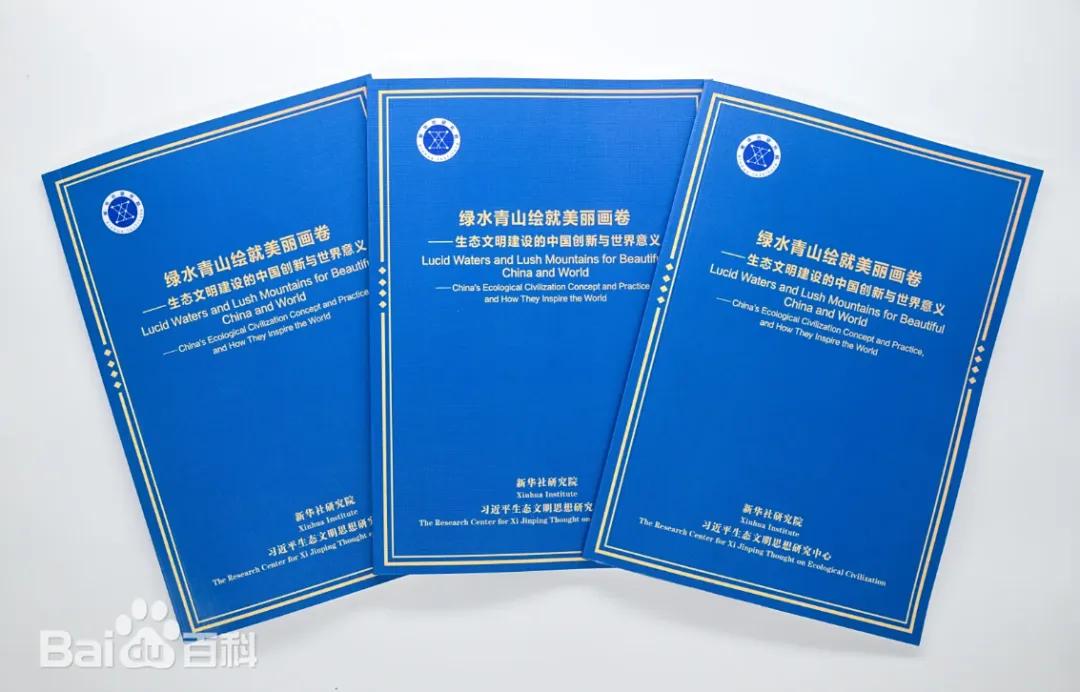
Over the past two decades, guided by the scientific principle that "lucid waters and lush mountains are invaluable assets("Two Mountains" theory)," China has made ecological protection a firm benchmark for development. The country has worked to transform the ecological advantages into economic prosperity, ensuring that a healthy environment becomes a cornerstone for sustainable economic and social growth. This has led to remarkable ecological progress and green development achievements that have captured global attention. Since the 18th CPC National Congress, China has actively promoted the "Two Mountains" concept, advocated for building a shared future for all life on Earth, and deeply engaged in global environmental governance. China has contributed its wisdom, solutions, and strength to building a human community with a shared future and advancing sustainable development. The country charts a blueprint for a cleaner and more beautiful world. (Xinhua Net)
09 Master Kong launches new "label-free lightweight bottle"
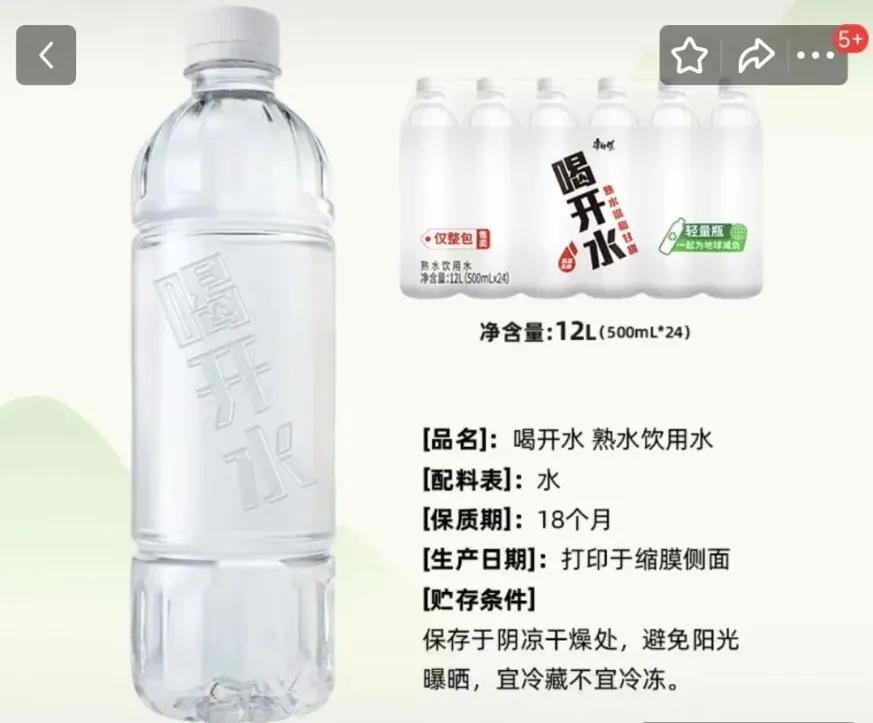
On August 10, Master Kong introduced its new "label-free lightweight bottles," featuring the concept of "three no's" : no bottle label, no ink, and no glue. The product debuted on JD.com. The bottle's packaging uses a PET material without labels, ink, or glue, with a laser-engraved logo, reducing material and energy use in line with low-carbon and eco-friendly principles. (Beijing Business Today)
08 Beijing Yanjing Beer establishes the sustainability (ESG) committee
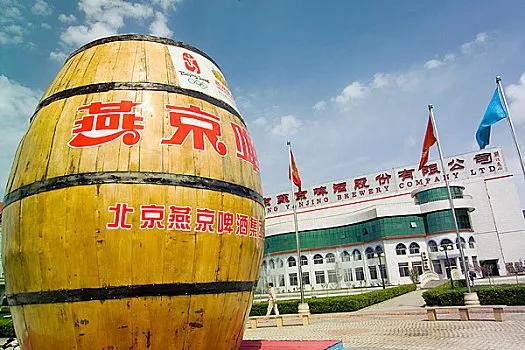
On August 11, Beijing Yanjing Brewery Co., Ltd. officially established a Sustainability (ESG) Committee and formulated the Sustainability (ESG) Committee Work Guidelines to improve its ESG management system and drive green governance and high-quality development. The committee consists of five members, including at least one independent director, serving three-year terms. Its core responsibilities include formulating ESG strategies, overseeing policy implementation, and reviewing sustainability reports. (East Money Information)
07 UN opens new round of negotiations on plastic pollution governance
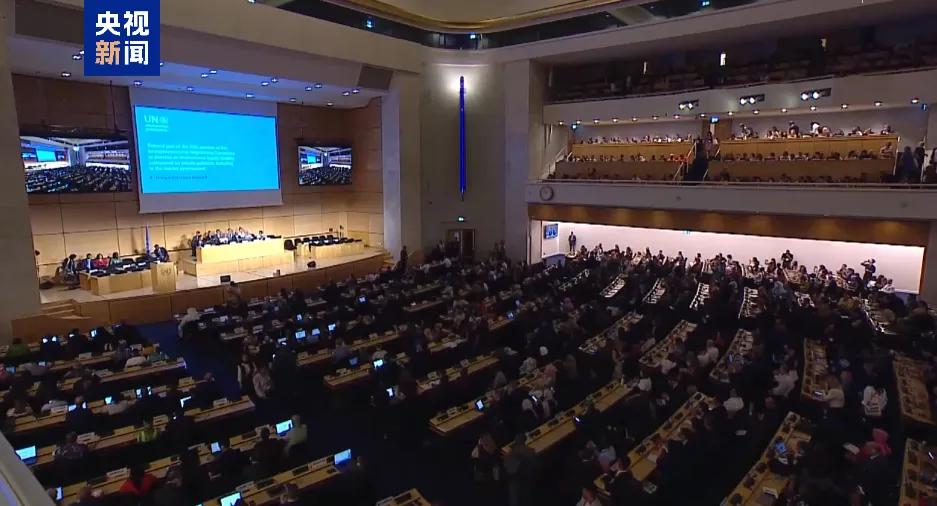
From August 5 to 14, the second part of the fifth session of the Intergovernmental Negotiating Committee to develop an international legally binding instrument on plastic pollution, including in the marine environment (INC-5.2), was held in Geneva. The session aimed to finalize and approve the text of the agreement to address the growing crisis of plastic pollution. The ten-day session reviewed a draft agreement covering the full lifecycle management of plastics, seeking to drive systemic changes from design and production to disposal, promote a circular economy, and reduce plastic waste in the environment. (CCTV News)
06 Abu Dhabi delivers the 2025–2050 climate change adaptation plan
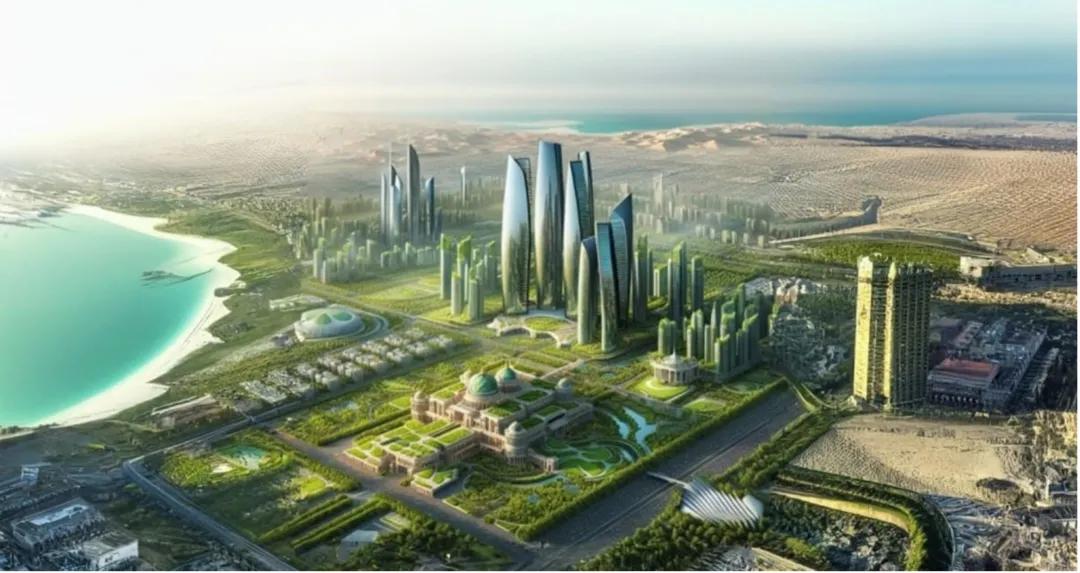
On August 4, the Environment Agency–Abu Dhabi (EAD) launched the Climate Change Adaptation Plan for the Environmental Sector (2025-2050). As a core component of the Abu Dhabi Climate Change Strategy 2023-2027, the plan aligns with the UAE's national climate goals and the Framework for Global Climate Resilience established at COP28. It outlines three strategic pillars: enhancing groundwater monitoring accuracy through technology, developing innovative soil conservation solutions to combat desertification, and establishing biodiversity corridors to strengthen ecological resilience. (Energy World)
05 The Third United Nations Conference on Landlocked Developing Countries concludes
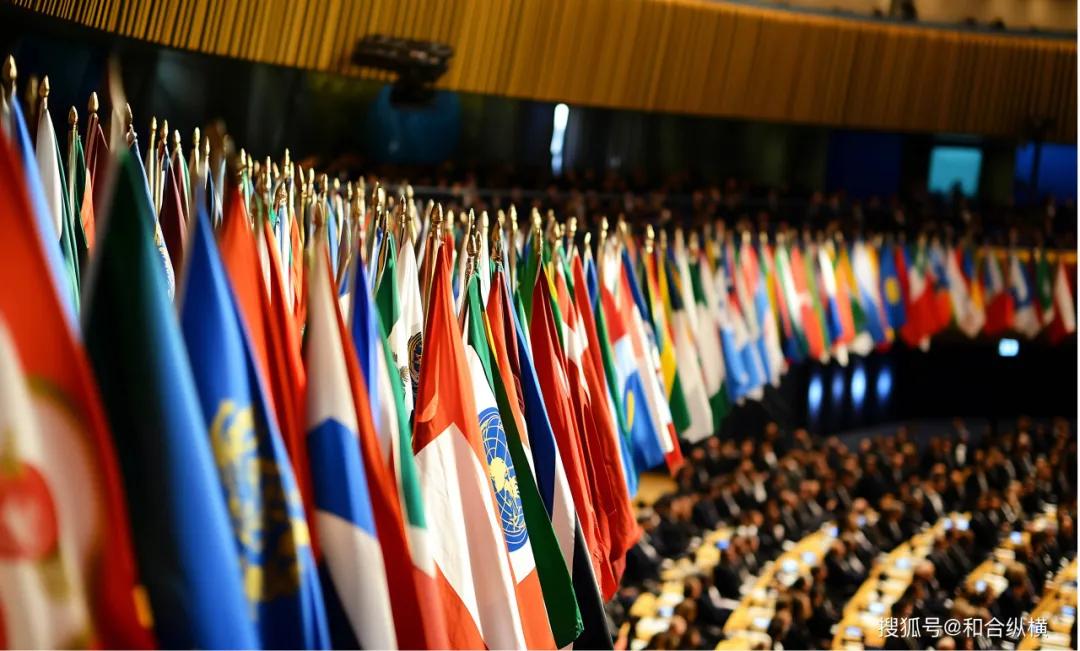
On August 8, the four-day Third United Nations Conference on Landlocked Developing Countries concluded in Turkmenbashi, a port city in Turkmenistan’s Balkan region. The conference adopted two key documents: the Awaza Political Declaration, and the formal endorsement of the Awaza Programme of Action (2024–2034)—a landmark framework to accelerate sustainable development and resilience for the world’s 32 landlocked nations. Together, they aimed to improve transport systems, diversify economies, advance digital transformation, enhance climate resilience, and attract sustainable financing. (Xinhua Finance)
04 China completes property rights registration for 5 national parks
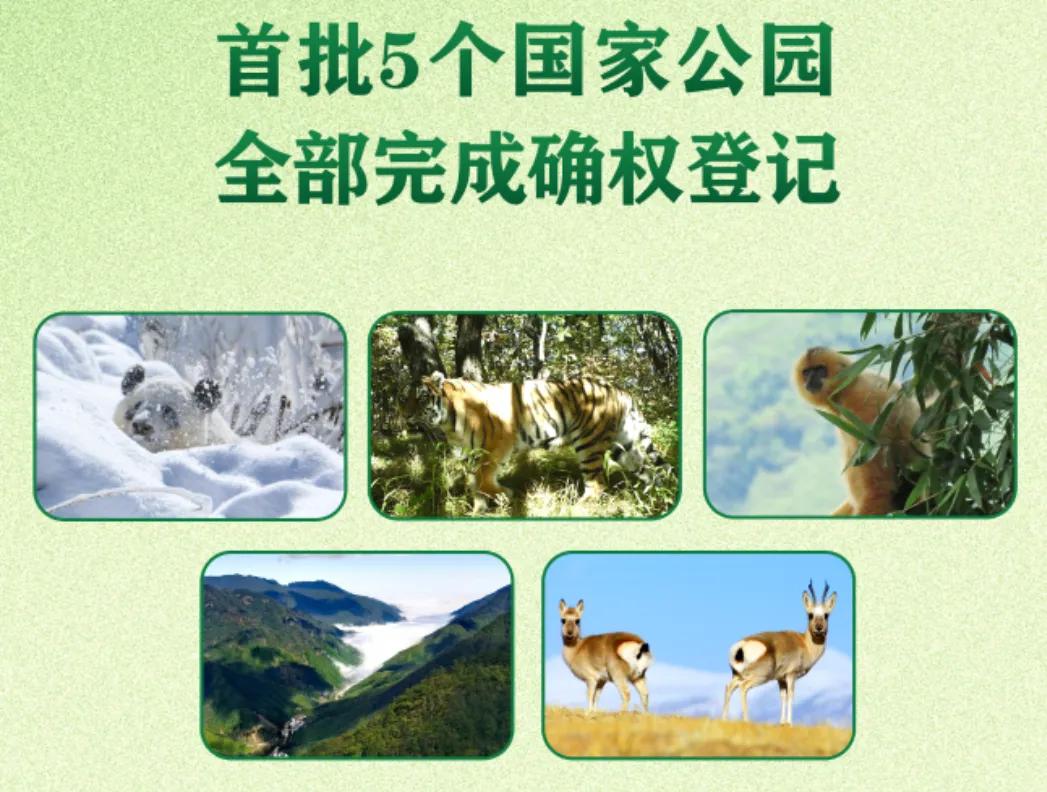
On August 11, China’s Ministry of Natural Resources announced that the country’s first five national parks—the Sanjiangyuan National Park, the Giant Panda National Park, the Northeast China Tiger and Leopard National Park, the Hainan Tropical Rainforest National Park and the Wuyishan National Park—have completed property rights registration. Based on the Civil Code and related laws, the registration precisely demarcates the parks’ spatial boundaries, clarifies the property rights of natural resource assets, defines the jurisdictional scope of governments at different levels, and distinguishes the responsibilities of owners and regulators. This will provide a foundation for property rights management in national parks. (Xinhua)
03 Seven ministries issue guidelines to strengthen financial support for new industrialization
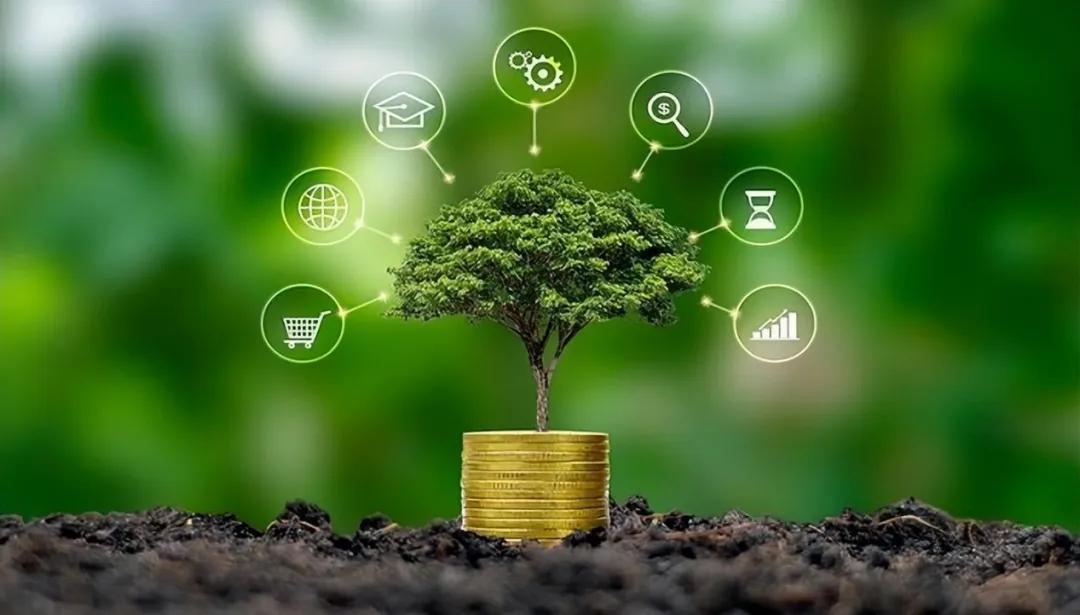
On August 5, The People's Bank of China, together with six other authorities including the Ministry of Industry and Information Technology and the National Development and Reform Commission, jointly released the Guidelines on Financial Support for New Industrialization. Regarding green finance, the document emphasizes leveraging its catalytic role to promote green, low-carbon, and circular development in industries. It calls for accelerating the establishment of a financial standard system supporting the green transition of carbon-intensive industries and enhancing the application of diversified green financial tools—such as green credit and green bonds—in the manufacturing sector's low-carbon transformation. (PBOC Website)
02 SAMR releases nine national standards for recycled plastics
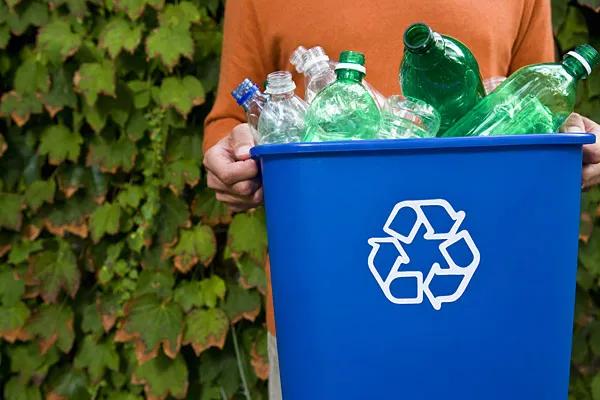
On August 11, China’s State Administration for Market Regulation announced the issuance of nine national standards related to recycled plastics, all effective from February 1, 2026. The standards cover quality requirements, product evaluation, composition identification, recyclable design, traceability, and environmental factor assessment for recycled plastics. They provide comprehensive technical support for building a closed-loop plastic recycling system and establish clearer regulations for the production and use of recycled plastics. (Xinhua Client)
01 ACFIC issues updated social responsibility evaluation guidelines
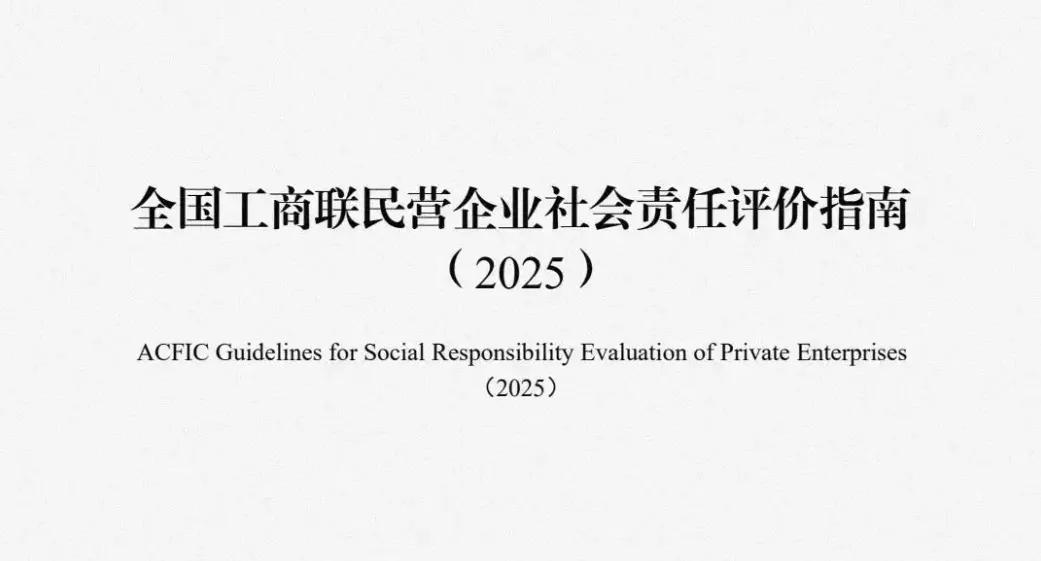
On August 7, the All-China Federation of Industry and Commerce (ACFIC) released the ACFIC Guidelines for Social Responsibility Evaluation of Private Enterprises (2025). The framework includes seven evaluation themes—developmental responsibility, employee responsibility, environmental responsibility, fair operation responsibility, consumer responsibility, social value, and social responsibility governance—with 27 indicators and 81 assessment items. The guidelines encompass the core aspects of private enterprises' social responsibilities in the new era, highlighting ideological and political leadership, emphasizing social value orientation, and addressing national strategies and public concerns such as rural vitalization, employment promotion, the "dual carbon" goals, and the Belt and Road Initiative. (Xinhua)
* The picture is sourced from the internet. If there is any infringement, please contact us to delete it.

 Back
to top
Back
to top